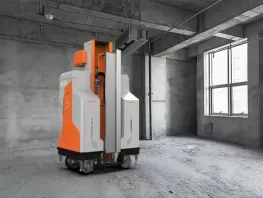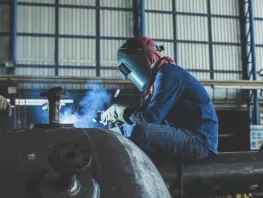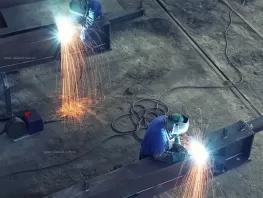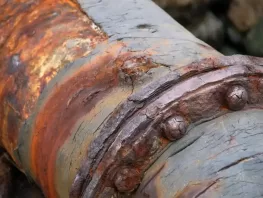
Epoxy vs. Polyurethane Flooring Systems for Industrial Environments: Which is Better?
Posted Jun 03, 2024 by Dave Scaturro

When it comes to industrial flooring systems, selecting the right material is crucial for ensuring durability, safety, and cost-effectiveness. Two popular options for industrial environments are epoxy and polyurethane flooring systems. Both have unique properties and advantages, making them suitable for different applications. This comparative analysis aims to help you understand the key differences and benefits of epoxy vs. polyurethane flooring systems, so you can make an informed decision for your industrial space.
Epoxy Flooring Systems: What are the Advantages and Disadvantages?
Epoxy flooring is known for its exceptional durability and strength, making it an ideal choice for environments with high traffic and heavy machinery. The robust nature of epoxy allows it to withstand significant loads without damage, ensuring a long-lasting surface that can handle the demands of an industrial setting.
In addition to its physical strength, epoxy flooring offers excellent chemical resistance. This characteristic is particularly important in industries such as manufacturing, pharmaceuticals, and automotive, where chemical spills are frequent. Epoxy's ability to resist a wide range of chemicals, including acids, solvents, and oils, helps maintain a safe and clean environment.
One of the standout features of epoxy is its superior adhesion to concrete surfaces. This strong bond creates a seamless and durable finish that prevents delamination, maintaining the flooring system's integrity over time. Moreover, epoxy flooring can be customized with various colors and finishes, enhancing the aesthetic appeal of industrial spaces. Decorative elements such as flakes or metallic pigments can be added to create a unique and visually appealing look.
However, epoxy flooring does come with some drawbacks. Its rigidity can be a disadvantage in environments where heavy impact or substrate movement is common. The lack of flexibility makes epoxy more susceptible to cracking under such conditions.
Additionally, standard epoxy is sensitive to UV radiation, which can cause it to yellow or fade when exposed to direct sunlight. This limitation makes it less suitable for areas with significant UV exposure. Another consideration is the curing time. Epoxy flooring systems often require longer curing periods compared to polyurethane, leading to extended downtime during installation.
Are Polyurethane Flooring Systems Better? Here are the Pros and Cons
Polyurethane flooring systems offer a different set of advantages. One of the key benefits is their flexibility. Unlike epoxy, polyurethane is more adaptable, allowing it to absorb impacts better and resist cracking. This flexibility makes polyurethane an excellent choice for areas with thermal cycling or where the substrate may move slightly.
Another significant advantage of polyurethane flooring is its UV stability. Unlike epoxy, polyurethane maintains its color and integrity even when exposed to direct sunlight, making it suitable for both indoor and outdoor applications.
In terms of chemical and abrasion resistance, polyurethane holds its own. While both epoxy and polyurethane are resistant to chemicals, polyurethane typically offers better resistance to organic chemicals. Its superior abrasion resistance also makes it ideal for environments with high wear and tear.
Additionally, polyurethane systems usually have faster curing times than epoxy, reducing downtime and allowing for quicker return to service.
Despite these benefits, polyurethane has its own set of challenges. Its adhesion to concrete is generally not as strong as epoxy, necessitating thorough surface preparation and potentially a primer layer to ensure a good bond.
Cost can also be a consideration, as polyurethane flooring systems tend to be more expensive than epoxy, both in terms of material costs and installation. Furthermore, polyurethane is more sensitive to moisture during application. High moisture levels in the substrate can lead to issues like bubbling or poor adhesion, making careful moisture management essential.
Which Flooring System is Right for Your Industrial Environment?
Choosing between epoxy and polyurethane flooring systems depends on the specific needs of your industrial environment. Factors to consider include load and traffic, chemical exposure, UV exposure, flexibility needs, and installation time.
For areas with heavy machinery and high traffic, epoxy’s superior strength and durability might be more appropriate. If chemical spills are common, especially with organic chemicals, polyurethane’s enhanced chemical resistance offers better protection. In spaces exposed to sunlight, polyurethane’s UV stability ensures the flooring will maintain its appearance and integrity over time. For environments where the substrate may move or experience thermal cycling, polyurethane’s flexibility can prevent cracking and extend the floor’s lifespan. Finally, if minimizing downtime is critical, polyurethane’s faster curing time can be a significant advantage.
In conclusion, both epoxy and polyurethane flooring systems offer distinct benefits and are well-suited for various industrial applications. By understanding the specific requirements of your environment and the properties of each flooring system, you can choose the solution that best meets your needs. For expert guidance and installation, contact Alpine Painting and let our experienced team help you select and implement the perfect flooring system for your industrial space.
